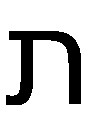 We conclude our study of Psalm 119 with this final stanza that begins each verse with the 22nd letter of the Aleph-Bet, the Hebrew letter “taw.” Most appropriately, this stanza of the psalm has the psalmist acknowledging what we knew all along – that he, like everyone, is a sinner and in need of God’s mercy and forgiveness (verse 176).
We conclude our study of Psalm 119 with this final stanza that begins each verse with the 22nd letter of the Aleph-Bet, the Hebrew letter “taw.” Most appropriately, this stanza of the psalm has the psalmist acknowledging what we knew all along – that he, like everyone, is a sinner and in need of God’s mercy and forgiveness (verse 176).
Psalm 87 is another psalm of the sons of Korah. The hymn, “Glorious Things of Thee Are Spoken,” by John Newman and Franz Joseph Haydn, is based on this psalm. It is a prophecy of a time when Jerusalem will become the birthplace of all nations through Him that will arise from there, as in birth. “Rahab” mentioned in verse three is another word for Egypt, and all of the other cities listed there are bitter enemies of Israel. It is an illustration of the fact that all nations will serve God one day.
Read or listen to audio of ESV version of this selection from this link.
/Bob’s boy
___________________
some images © V. Gilbert & Arlisle F. Beers
Please note: I did not design the reading plan that I am following in my blog. All of my comments in this blog, however, are solely my responsibility. When reading ANY commentary, you should ALWAYS refer first to the scripture, which is God’s unchanging and unfailing word. Reading schedules, as well as a link to the site where you can get the reading plan that I’m currently following for yourself can be found on the “Bible Reading Schedules” page of my website at http://graceofourlord.com. For questions and help, please see the “FAQ” and “Summaries” pages there.











